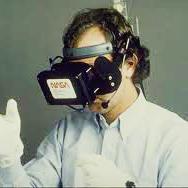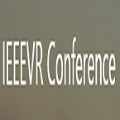Virtual reality allows creating highly immersive visual and auditory experiences, making users feel physically present in the environment. This makes it an ideal platform to simulate dangerous scenarios, including fire evacuation, and study human behaviour without exposing users to harmful elements. However, human perception of the surroundings is based on the integration of multiple sensory cues (visual, auditory, tactile, or/and olfactory) present in the environment. When some of the sensory stimuli are missing in the virtual experience, it can break the illusion of being there in the environment and could lead to actions that deviate from normal behaviour. In this work, we added an olfactory cue in a well-documented historic hotel fire scenario that was recreated in VR, and examined the effects of the olfactory cue on human behaviour. We conducted a between subject study on 40 naive participants. Our results show that the addition of the olfactory cue could increase behavioural realism. We found that 80% of the studied actions for the VR with olfactory cue condition matched the ones performed by the survivors. In comparison, only 40% of the participants' actions for VR only condition were similar to the survivors.
翻译:暂无翻译



